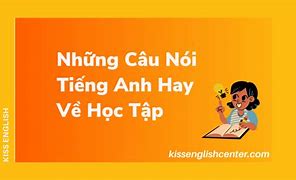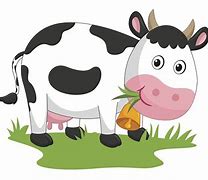
Quá Trình Học Tập Trong Tiếng Anh
LTS: Tiếp tục gửi tới bạn đọc Báo Điện tử Giáo dục Việt Nam bài viết về tư duy phản biện trong quá trình học tập, tác giả Nguyễn Thị Lan Hương đã có bài viết chia sẻ.
LTS: Tiếp tục gửi tới bạn đọc Báo Điện tử Giáo dục Việt Nam bài viết về tư duy phản biện trong quá trình học tập, tác giả Nguyễn Thị Lan Hương đã có bài viết chia sẻ.
Bạn cần nộp đơn xin visa? Chúng tôi sẵn sàng hỗ trợ.
Visa du học sinh là sự chấp thuận của cơ quan di trú ghi trên hộ chiếu của bạn. Theo đó, thông tin trên visa nêu rõ bạn được phép nhập cảnh nước đó và ở lại để học trong khoảng thời gian cụ thể.
Thường thì bạn có thể bắt đầu nộp đơn xin visa du học sinh sau khi nhận được thư mời nhập học từ trường. Chúng tôi khuyến khích bạn nộp đơn xin visa càng sớm càng tốt vì thời gian xử lý đơn xin visa có thể kéo dài.
Có một số bước cụ thể cần thực hiện khi xin visa du học sinh. Thứ tự các bước này và cách hoàn tất chúng có thể thay đổi tùy theo nơi bạn dự định du học. Bạn ngán ngẩm việc giấy tờ? Bạn không phải là người duy nhất không thích điều này! Nếu bạn cần được hỗ trợ trong quá trình xin Visa du học, tư vấn viên IDP có thể chắc chắn rằng bạn sẽ luôn được tiếp cận với nguồn thông tin chính xác nhất. Ngoài ra, chúng tôi còn hỗ trợ dịch thuật và chuyển phát tài liệu nhằm giúp quá trình làm hồ sơ xin Visa của bạn trở nên dễ dàng hơn.
Các quá trình và yêu cầu mà du học sinh cần phải đáp ứng để được cấp visa du học sẽ thay đổi tùy theo quốc gia.
Bạn cũng có thể cần cung cấp bằng chứng về khả năng Anh ngữ của mình và tiến hành khám sức khỏe và/hoặc công chứng lý lịch tư pháp. Tư vấn viên IDP sẽ hướng dẫn cụ thể những loại giấy tờ nào bạn cần phải cung cấp.
Toàn bộ giấy tờ đều cần được sao y chứng thực và nên nhớ các giấy tờ có thể sẽ cần phải được chuyển ngữ khi công chứng.
Tìm hiểu thêm về các yêu cầu khi xin visa:
• Yêu cầu xin visa du học sinh để đến Hoa Kỳ
• Yêu cầu xin visa du học sinh để đến Vương quốc Anh
• Yêu cầu xin visa du học sinh để đến Úc
• Yêu cầu xin visa du học sinh để đến Canada
• Yêu cầu xin visa du học sinh để đến New Zealand
Bạn cần hỗ trợ trong quá trình nộp đơn xin visa? Chúng tôi luôn sẵn sàng.
IDP hiểu được những khó khăn của học sinh và phụ huynh khi chuẩn bị hồ sơ du học và rất nhiều thắc mắc cần được giải đáp. Có những kỳ hạn bạn cần ghi nhớ để không bỏ lỡ bất kỳ cơ hội nộp đơn vào trường.
Nếu bạn đang ấp ủ dự định du học và chinh phục học bổng du học trong thời gian tới, hãy liên hệ chuyên viên tư vấn của chúng tôi để được giải đáp mọi thắc mắc.
Các dịch vụ hỗ trợ miễn phí từ IDP bao gồm: Tư vấn du học miễn phí, giải pháp du học tiết kiệm, giới thiệu học bổng du học phù hợp từ 30% - 100%. IDP thường xuyên tổ chức hội thảo du học các nước với quy mô lớn, kết nối học sinh tới hơn 1.000 trường uy tín và 175.000 khóa học trên toàn thế giới.
Khi đến làm hồ sơ tại IDP, bạn sẽ được hỗ trợ nộp đơn xin nhập học, theo dõi tiến độ và nhận thư xác nhận từ trường. Các tư vấn viên cũng sẽ giúp bạn thực hành phỏng vấn, hoàn tất hồ sơ xin visa du học Úc, Mỹ, Canada, Anh, New Zealand, Ireland miễn phí với tỷ lệ thành công đến 95%.
Các dịch vụ về tư vấn chỗ ở, ngân sách du học, hỗ trợ đặt vé máy bay, trang bị kỹ năng trước khi lên đường (Pre-departure session) cũng sẽ được IDP hỗ trợ miễn phí.
I. Find the word which has a different sound in the part underlined.
A. lookedB. watchedC. carriedD. stopped
A. studyB. successC. surpriseD. sugar
A. uniteB. underlineC. universityD. uniform
A. dangerB. angryC. languageD. passage
A. characterB. childrenC. teacherD. change
II. Choose a word in each line that has different stress pattern.
A. realizeB. improveC. possibleD. comfortable
A. importantB. especiallyC. preferD. influence
A. generalB. opinionC. abroadD. surprise
A. comfortB. nationC. applyD. moment
A. medicalB. adviseC. vegetablesD. physical
III. Find the word which has different sound in the part underlined.
A. leisureB. eightC. celebrateD. penalty
A. braceletB. cakeC. cakeD. hat
A. althoughB. laughC. paragraphD. enough
A. comedyB. novelC. princessD. cinema
I. Use the adjective in brackets in their correct forms of comparison to complete the sentences.
1. Tea is ______________________ coffee. (cheap)
2. The new harvest machine is ______________ than the old one. (effective)
3. The countryside is __________ the town. (beautiful)
4. A tractor is _____________ a buffalo. (powerful)
5. My sister is _____________ me. (tall)
6. Blue whales are ______________ elephants. (heavy)
7. The Mekong River is ___________ the Red River. (long)
8. Do you think English is ______________ French in grammar? (easy)
9. My new bed is _________ my old bed. (comfortable)
10. The film about my village town is ____________ than the book. (interesting)
II. Complete the sentences with suitable forms of the adverbs given in the brackets.
1. I am a faster worker than Tom is. (fast)
2. Mai’s singing is more beautiful than Mi’s. (beautiful)
3. We were earlier at the party than the Smiths last night. (early)
4. Phong’s voice is louder than Nick’s. (loudly)
5. My English is more fluent than my sister’s. (fluently)
III. Complete the sentences, using the comparative from of the adverbs from the correspondent adjectives in the brackets.
1. It usually rains __________________ in Central Viet Nam than in other regions. (heavy)
2. I will have to try a bit __________________ than this. (hard)
3. The hall was lighted __________________ than the corridors. (bright)
4. Time goes by __________________ when we are busy. (quick)
5. Our family has lived __________________ in the country than in the tower since last year. (happy)
6. The boys were playing the game __________________ than the girls. (noisy)
7. This task can be completed __________________ than that one. (easy)
8. A tractor can plough __________________ than a buffalo or a horse. (good)
IV. Complete the sentences with suitable forms of the adverbs given in the brackets.
1. Nick is a careful writer than Phuc. (carefully)
Nick writes essays _______________________
2. A snail is slower than a crab. (slowly)
A snail moves __________________________
3. My father’s explanation about the subject was clearer than my brother’s. (clearly)
My father explained the subject _____________
4. My cousin is a better singer than I am. (well)
My cousin sings _________________________
5. Phong is faster swimmer than Phuc. (fast)
Phong swims __________________________
V. Complete the sentences, using the comparative form of the adverbs from the correspondent adjective in the box.
1. A baby can sleep __________________ than an adult.
2. People in the country eat __________________ than people in the city.
3. Our grandparents got dressed __________________ than we do nowadays.
4. Nick speaks English __________________ then I do.
5. That old lady donates __________________ than her family members.
6. City people seem to apply modern techniques __________________ than country people.
7.The scientist talked __________________ about the future of young people in the country than local people.
8. The paddy fields in my village were __________________ affected by the floods than the next village.
VI. Fill each blank with a, an or the to complete the following passage.
Vietnam is (1)_________ multi-nationality country with 54 ethnic groups. The Viet (Kinh) people account for 87% of (2)_________ country’s population and mainly inhabit (3)_________ Red River Delta, (4) _________ central coastal delta, (5) _________ Mekong Delta and major cities. (6) _________ other 53 ethnic minority groups, totalling over 8 million people, are scattered over mountain areas spreading from the North to the South.
(7) _________ number of ethnic minorities had master some farming techniques. They grew rice plants in swamped paddy fields and carried out irrigation. Others went hunting, fishing, collecting and lived (8) _________ semi-nomadic life. Each group has its own culture, diverse and special.
However, (9) _________ evident gap in the material and moral has indeed still existed between peoples living in the deltas and those living in mountain areas as well as among ethnic minorities themselves. (10) _________ Vietnamese government has worked out specific politics and special treatments in order to help mountainous people catching up with lowland people, and made great efforts to develop and preserve traditional cultural identities of each ethnic minority group.
VII. Fill each blank with a, an or the to complete the following passage.
(1) _________ Lo Lo ethnic group can be divided into Flower Lo Lo and Black Lo Lo. Living in Lung Cu since ancient times, the Lo Lo people have made efforts in making (2)_________ homeland suitable for farming. (3)_________ Lo Lo folkloric culture is very rich and unique, demonstrated with dances, songs, legends. (4) _________ Lo Lo calendar divides a year into 11 months, each corresponding (5) _________ animal’s name. decorations on their turbans, shirts, skirts and trousers are particularly colourful.
(6) _________ ancient bronze drums are very important. (7)_________ head of each family is entitled to keep the drums which are used only during funerals of festivals to maintain rhythms for dances. The Lo Lo people are among (8) _________ few ethnic groups in Vietnam who still use bronze drums, (9) _________ traditional musical instrument closely associated with (10)_________ legend about the Flood.
VIII. Complete the sentences with a form of “have to” or “should”. Make the verbs negative when necessary.
1. Your hair’s too long. I think you ________________ get it cut.
2. Your clothes are dirty. You ________________ wash them.
3. I’m going to bed. I ________________ get up early tomorrow.
4. I’d like to meet your best friend. You ________________ invite him/ her round.
5. I ________________ tell my parents where I am, then they don’t worry.
6. You ________________ come with me if you don’t want to. I’ll go on my own.
7. If you need some help with your homework, you ________________ go to the library.
8. If you have a ticket, you ________________ queue. You can go straight in.
9. You ________________ tell lies. It’s wrong.
10. Nick works too much. I think he ________________ take it easy.
I. Fill in each blank with the appropriate form of the word in brackets.
1. Iceland is considered the most ________________ country in the world. (peace)
2. A ________________ lifestyle has its advantages and disadvantages. (nomad)
3. My brother has been a stamp ________________ for several years. (collect)
4. It is a/ an ________________ place to hold a picnic because it is too far from the road. (convenience)
5. Drinking water in some areas may be ________________. (safe)
6. During my stay in the village, I was ________________ with several local farmers. (friend)
7. Encouraging children to eat and drink ________________ is very important. (health)
8. Local people in the village often wear their ________________ costumer during the festivals. (tradition)
9. Please give ________________ to that charity to help the homeless after the flood. (generous)
10.The baby slept very ________________ because the bed was really comfortable. (sound)
II. Use the correct form of the words in brackets to finish the sentences.
1. Terraced rice fields in Sa Pa are slopes claimed for cultivation in hilly or ________________ areas. (mountain)
2. For the Muong, rice is also the main ________________ crop. (agriculture)
3. The Muong call their ________________ calendar “sach doi”, which is made from 12 bamboo sticks that represent the 12 months. (tradition)
4. Viet Nam is a country of tremendous __________ with 54 ethnic groups. (diverse)
5. The ethnic minority groups in Viet Nam have been living in ________________ co-existence. (peace)
6. Some regions in Central Highlands in Viet Nam are not ________________. (populate)
7. He spoke ________________ about the life in the countryside in Viet Nam. (optimistic)
8. All of us can realize the ________________ atmosphere in the countryside life. (peace)
9. Some of the ________________ have lived here all their lives. (village)
10. Having to wait for ten minutes was a minor ________________. (convenient)
1. Are you interested...........playing badminton after class?
2. "What.........going to Hanoi tomorrow?"
3. Hoa works very..........so she always gets good marks.
A. badly B. goodC. hardly D. hard
4. The building was built . .......1962 and 1969.
A. between B. fromC. sinceD. for
5. This school. ........in 1997
A. built B. is built C. was built D. has built
6. Of all my friends, Hoa is............
A. the tallestB. the most tallest C. taller D. more taller
7. Would you mind if I……………a photo?
A. take B. tookC. would takeD. am going to take
8. Last week I ……………my children to the biggest zoo in town.
A. got B. brought C. fetch D. took
9. Are you proud…………….your country and its tradition?
10. Do you collect stamps or other things? - Yes, I am a stamp………….
A. collectingB. collector C. collectD. collection
11. It is very dangerous ………….. in the polluted environment.
A. to live B. lives C. living D. live
12. Our ………….. resources are limited so we should recycle all used things.
A. nature B. naturalC. naturingD. naturally
13. His car is the same color …………. my uncle’s.
14. This ruler …………….. of plastic.
A. makeB. madeC. is makingD. is made
15. I take part ………….. most youth activities of my school.
Yoga helps us learn ________ to co-ordinate breathing and movement.
Teenagers enjoy ________ to music and ________ out with friends.
A. listen – hangB. to listen – to hang C. listening – hang D. listening-hanging
________ should children do yoga too?
Don’t worry. It is ________ to travel to that village even at night.
A. safe B. unsafe C. difficult D. inconvenient
Life in a small town is ________ than that in a big city.
A. peacefulB. much peaceful C. less peaceful D. much more peaceful
The boys often help their parents to ________ water from the village well.
A. gather B. collect C. give D. find
Mời các bạn tải file tài liệu để xem thêm nội dung chi tiết



















